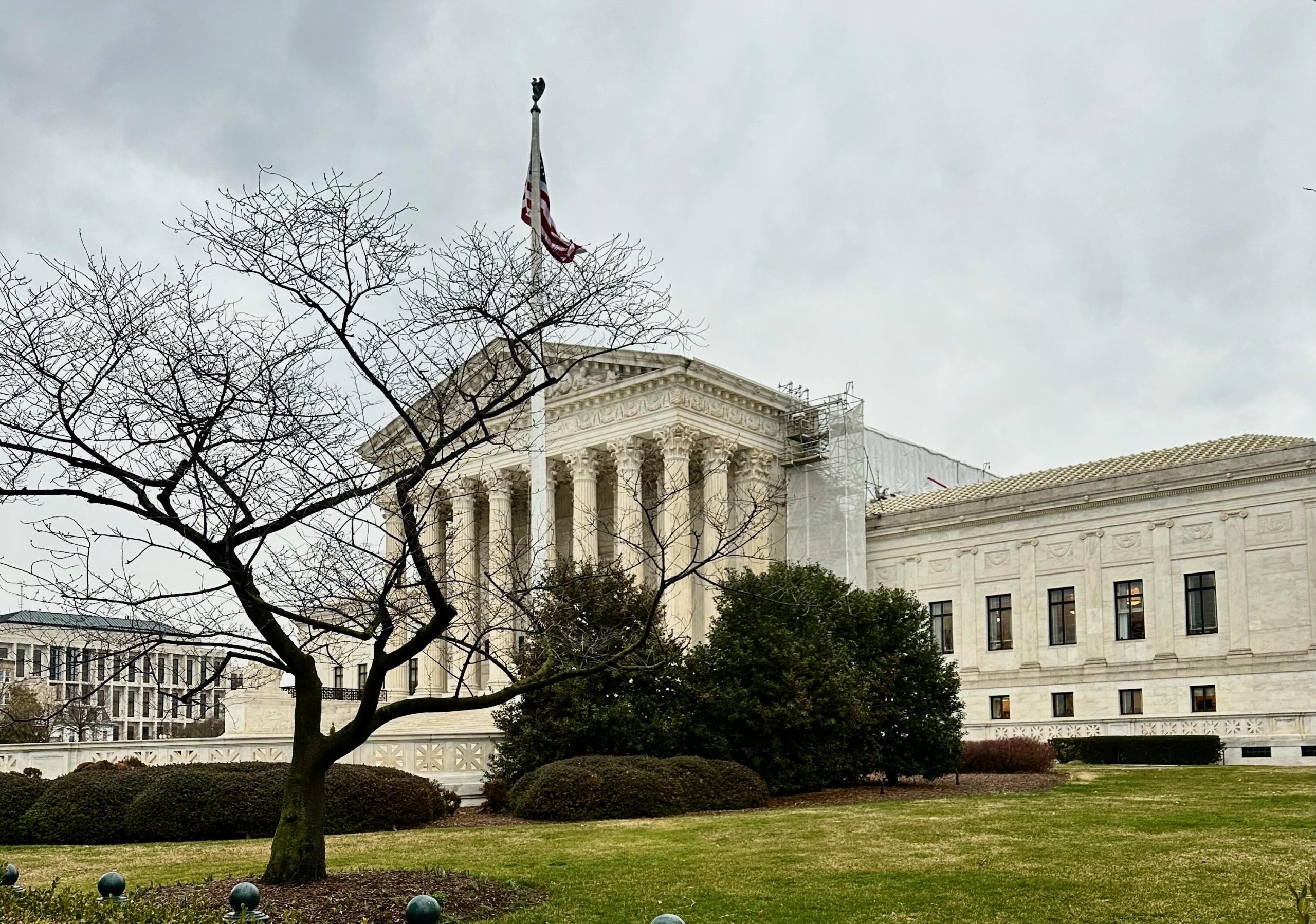NUT DOCK
By Amy Howe
on 9 January 2025
at 11:27

President-elect Donald Trump on Wednesday asked the Supreme Court to block his criminal conviction in New York. (Katie Barlow)
Prosecutors on Thursday urged the Supreme Court to allow Donald Trump’s sentencing hearing in his New York hush money case to proceed as scheduled Friday morning. Emphasizing that Trump’s conviction rests on conduct for which he is not entitled to immunity, that Trump can attend Friday’s hearing “via video at the trial court’s invitation to minimize any burden” and that Trump can appeal after he is convicted, prosecutors wrote. in an archive of 38 pages that there is no reason for the judges to take “the extraordinary step of intervening” now.
The filing came a day after Trump asked the justices to block the sentencing. Judge Sonia Sotomayor, who handles emergency appeals from New York, directed the state to respond to Trump’s request by 6 p.m. 10 Thursday, signaling that the court is likely to act quickly.
New York District Court Judge Juan Merchan has ordered Trump to appear Friday morning for sentencing on 34 counts of falsifying business records to conceal payments made to adult film star Stormy Daniels before the 2016 presidential election. In a Jan. 3 statement Merchan indicated he has no intention of sentencing Trump to prison. Under Merchan’s proposed “unconditional discharge,” Trump would face no real punishment, but the conviction would remain on his record.
Trump nevertheless sought to have the charges against him dismissed, pointing to his re-election in November 2024 and arguing that the charges were politically motivated. Merchan rejected that request, stressing that Trump himself was responsible for delaying sentencing until after the election.
After a state appeals court judge also declined to stay the sentencing, Trump came to the Supreme Court on Wednesday and asked the justices to intervene “to prevent grave injustice and harm to the institution of the presidency and the operations of the federal government.” Trump asked the justices to extend the presidential immunity granted in their ruling until 2024 Trump vs. the United States, covers the official actions of a President in this matter. (Trump also asked the New York Court of Appeals, the state’s highest court, to intervene, but a judge in that court turned him down Thursday morning.)
As a preliminary matter, prosecutors argued, the Supreme Court lacks authority to intervene in Trump’s case right now because no final ruling has been made by the trial court — much less the final ruling required under federal law by New York’s highest right.
But even if the Supreme Court as a general rule had the authority to intervene, the prosecutors continued, Trump still does not have the right to have his sentencing suspended. First, the harm to the public interest outweighs any harm to Trump by allowing the sentencing to proceed. If Trump is not convicted before his Jan. 20 inauguration, prosecutors argued, sentencing may not come before he leaves office — a “particularly unfair result” when Trump himself is responsible for the delay. On the other hand, they continued, the sentencing will likely take “less than an hour” of Trump’s time on video, and Merchan has indicated he will not sentence Trump to prison.
Prosecutors rejected as “baseless” Trump’s suggestion that he cannot be sentenced on Friday because he is the president-elect. “No court decision or Justice Department guidance has ever recognized that the exceptional temporary immunity of the sitting president extends to the president-elect,” they emphasized. Granting immunity to an elected president would also conflict with the rationale behind presidential immunity, they write, which is to allow a sitting president to act without worrying that his conduct will later be the subject of a lawsuit.
Nor should Trump’s sentencing be stayed based on his claim that prosecutors improperly relied on evidence of his official acts to obtain his conviction. Although the Supreme Court’s decision in Trump against the United Statesargued prosecutors, indicated that evidence of official acts could not be used against a former president, it did not hold that an immediate appeal should be available when a defendant objects to the use of such evidence.
But in any case, the prosecutors continued, the state court in Trump’s case concluded that the evidence of Trump’s guilt was so “overwhelming” that any evidence of his official acts would not have made a difference to the jury’s verdict. And the evidence Trump challenged after his trial, they added, could be admitted — for example, because it actually stemmed from his off-the-record conduct, such as social media posts about Michael Cohen, the president’s former lawyer.
Wednesday afternoon, ABC News writes that shortly before he filed his request to suspend his sentencing, Trump spoke with Justice Samuel Alito, who recommended one of his former law clerks for a job in the new administration. In a statement to ABC News, Alito said he and Trump did not discuss Wednesday’s filing or other matters before the courts.
The Supreme Court can respond to Trump’s request at any time.
This article was originally published on Howe on the Court.